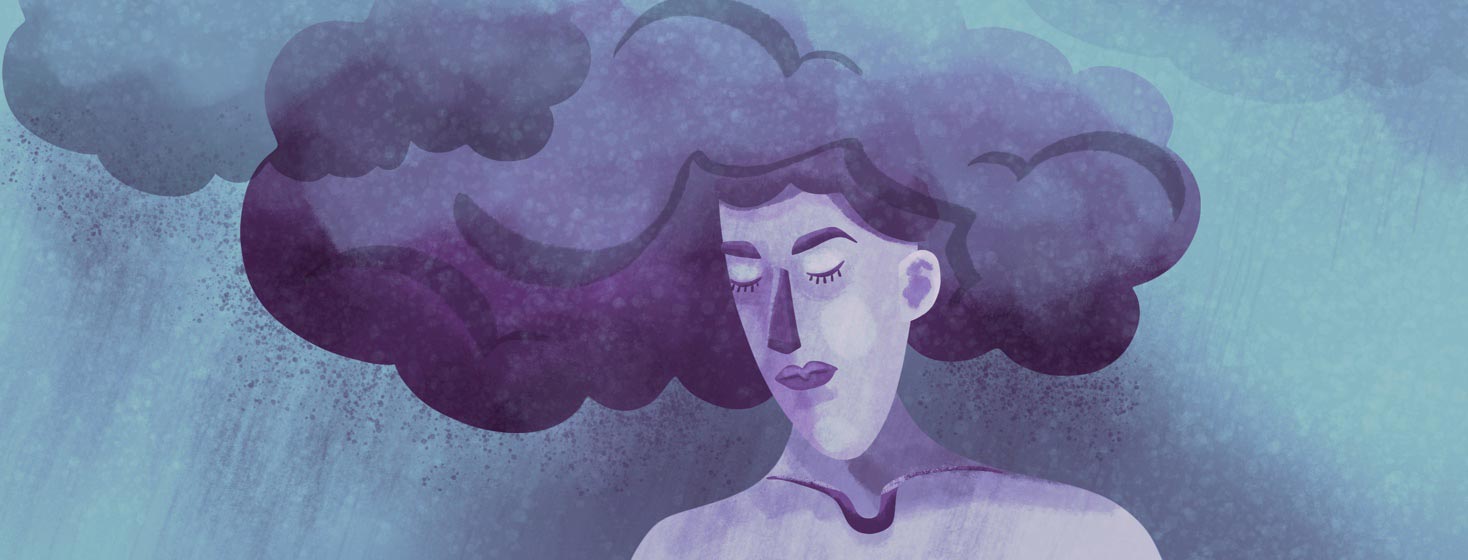What's the Relationship Between Depression and Sickle Cell Symptoms and Complications?
As a medical student, I'm often tasked with researching the intersection of different health conditions. Recently, I looked into the connection between sickle cell disease and mental health disorders.
Depression, chronic disease, and race
Vaso-occlusive events predispose patients to develop depression. This happens in post-stroke and heart attack patients. We see it in sickle cell patients too. Sickle cell patients are 0.94 times more likely than their counterparts without the disease to be diagnosed with depression. Yet, they are the least likely of children and adolescents with chronic illnesses – like Diabetes Miletus type 1 and 2, asthma, and ADHD – to be diagnosed with depression. This doesn’t mean that people with sickle cell don’t struggle with depression, but that maybe there’s another factor that makes them less likely to receive a diagnosis. In the US, most people with sickle cell are Black and many studies have shown that mental health diagnoses are missed more in Black children than in any other race or ethnicity.1,2
Undiagnosed
How does undiagnosed, and therefore untreated, depression affect the prognosis of sickle cell disease? Well, even if patients are not more or less likely to experience vaso-occlusive episodes, depressed sickle cell patients are more likely to complain of associated symptoms and have a worse overall prognosis. 3
Why is that? We know that mood modulates our perceptions of the world around us and of ourselves, but it also modulates how we experience pain.3
A closer look
In one study by the NIH, sickle cell patients with depression had more vaso-occlusive pain and acute chest syndrome visits per year, developed more complications with related organ damage, and incurred significantly higher outpatient, acute (emergency + inpatient) and total sickle cell disease care costs. 2
On the flip side, studies have also shown that when patients report better mood, they’re less likely to report symptoms of pain and over-utilize care resources. Sickle cell patients with strong support systems, consistent medical follow up, and a positive outlook have better disease prognosis. This makes sense because these are the same protective factors for depressed patients.2
Treatment
So how do we treat vaso-occlusion, sickle cell, and depression?
First line treatment
Post-clot depressive episodes are treated the same way as regular depression with selective serotonin reuptake inhibitors (SSRIs) and psychotherapy being first line. We know lots of antidepressants exist to treat depression. However, there aren’t as many clear treatment options for sickle cell outside of hydroxyurea and NSAIDS/opiates to manage the pain.
TCAs
Interestingly, tricyclic antidepressants (TCAs) which we know can be used to treat depression and chronic pain (amitriptyline), may also treat sickle cell crises. Like TCAs work to modulate mood, they may also reduce the dosage of opiates required for pain management in sickle cell patients by interfering with pain perception. Furthermore, alleviating the depressive symptoms many patients may struggle with increases their threshold for pain.4
Hypnosis
Another study by the NIH, showed that a single 30-minute hypnosis session decreased pain intensity by a moderate amount in patients with SCD, in addition to exhibiting a greater increase in blood flow. So, there’s this theme of relaxing the mind, distracting the mind, or just alleviating built-up stress/depression that improves symptoms. 5
My experience with anxiety
I’ve seen it in my own life too and how I am sometimes able to distract myself from the pain or when I experience more pain in times of stress or distress. I have anxiety, and the same study on the prevalence of depression in sickle cell patients actually showed they are less likely to have anxiety than their counterparts without the disease. 2
When I feel myself getting anxious, my mind and heart start racing, and I'm way less able to cope with emotional let alone physical pain. To me, this all makes a lot of sense. I believe there needs to be more of a focus on holistically treating patients with sickle cell and considering their mood symptoms in the management of their health.

Join the conversation